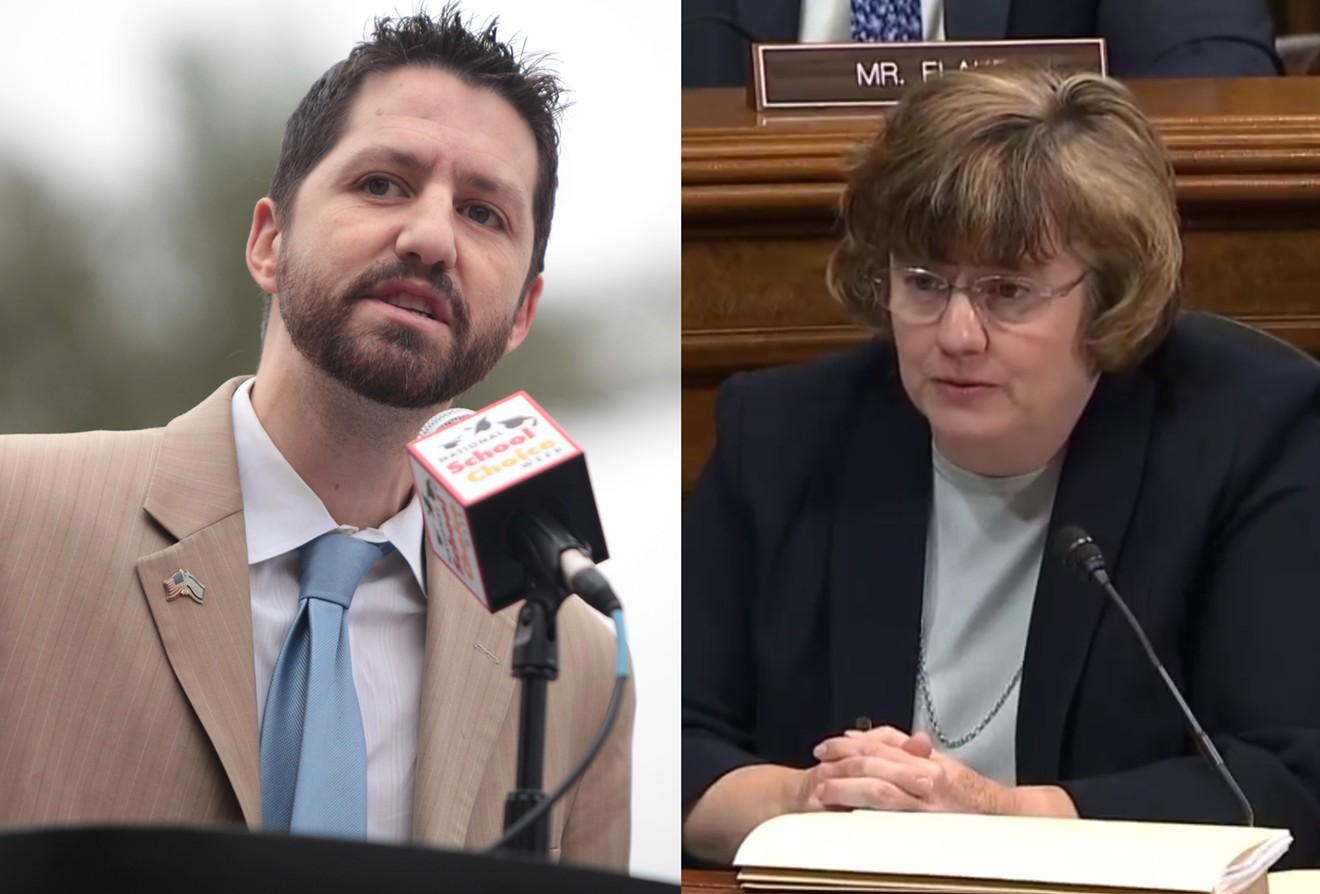A governor-appointed task force has finished studying Arizona's laws on child sex abuse and issued 19 recommendations to improve them.
Among its suggestions are changes that would expand the criminal statute of limitations for child sex trafficking, broaden the definition of sex abuse perpetrators who are in a position of trust, and increase funding for police investigations, awareness campaigns, and reporting technology.
Notably missing, as first reported by the subscription-based political tipsheet Yellow Sheet Report, is an explanation of how the state might expand the civil statute of limitations for child sex abuse cases. The task force says the current age limit of 30 for filing lawsuits is "not sufficient" and suggests that a third party should conduct research on what might be an appropriate age, but the group doesn't suggest a legal pathway to changing it.
Governor Doug Ducey established the Justice for Victims of Child Sex Abuse Task Force through an executive order in May. He charged the committee with conducting a statewide review of laws for protecting children victimized by sex abuse and recommending reforms that could improve those laws.
The group, co-chaired by Republican State Senator Paul Boyer and Maricopa County Attorney's Office Chief Deputy Rachel Mitchell, met six times between September and November before issuing its final recommendations on November 22.
The task force's discussions since the summer have dug in on how to prevent child sex abuse with education, how to improve reporting, how to help let Arizonans know about changes in the law, and how to improve criminal statutes to help more victims. Its recommendations are divided into criminal, civil, and education-related solutions.
On the criminal side, the committee suggests ways to close loopholes that can make it harder to prosecute criminal child sex abuse cases. For example, it recommends eliminating the criminal statute of limitations for child sex trafficking cases, which is currently set at seven years from discovery. It also suggests adding more categories of people as "positions of trust," a legal definition for perpetrators who have reason to be trusted by minors, including parents, teachers, and coaches.
The group suggests boosting funding for law enforcement activity around child sex abuse cases, including forensic interviews and cold case units. It also recommends a statewide database be created so police can share data about sexual predators in different jurisdictions. Right now, there's no way for different agencies to share that information.
On the civil side, the task force suggests appointing the Governor's Office of Youth, Faith and Family to spread the message about the Arizona Child Protection Act, which lifts the civil statute of limitations until December 31, 2020, giving child sex abuse victims of any age a short window to press charges against their attacker. In the past, Arizona law only allowed child sex abuse victims to file civil cases against their attackers until they turned 20. It also advocates adding funding for a 24-hour hotline for victims of any age to receive counseling or get referrals to report abuse.
In an op-ed in Arizona Capitol Times, task force co-chair Paul Boyer said he thought the state shouldn't stop there.
"There’s no doubt these are big victories for children, and for law and order," he wrote. "But as good as it is, Arizona’s new law doesn’t go nearly far enough."
Several other states allow child sex abuse claims to be brought far later in life, and nine states currently have no statute of limitations for such victims.
The task force's report also highlights educational reform, which has been a point of tension in Arizona as the state considers how to approach sexual education in schools.
It argues that the Arizona State Board of Education needs more funding for investigators, who are currently understaffed and saddled with more than double the "appropriate and manageable" amount of cases, according to the report.
The task force wants to give that board the authority to investigate the 6,000 "uncertified educators" currently working in Arizona who are currently exempt from its jurisdiction.
In addition to boosting employee training on sex abuse reporting and writing best practices for social media and cell phone use, the state should also pass legislation to provide students age-appropriate materials in school on sex abuse, the task force argues. The task force endorses "Erin's Law," or SB 1251, which Republicans blocked in last year's legislative session.
Despite the task force's endorsements, Erin's Law and any other potential bills related to sex education may face additional hurdles next year, because sex education itself is likely to spark controversy between Republicans and Democrats in the 2020 legislative session.
Despite the task force's endorsements, Erin's law and any other potential bills related to sex education may face additional hurdles next legislative session, when sex education itself is likely to spark controversy between Republicans and Democrats.
Ducey responded to the task force's recommendations in a press release.
"My sincere thanks to the task force’s co-chairs, Maricopa County Attorney’s Office Chief Deputy Rachel Mitchell and Senator Paul Boyer, as well as everyone who dedicated their time and energy to develop these recommendations," he wrote. "I look forward to working with all members to implement them.”
The group's full list of recommendations can be viewed below:
[
{
"name": "Air - MediumRectangle - Inline Content - Mobile Display Size",
"component": "18478561",
"insertPoint": "2",
"requiredCountToDisplay": "2"
},{
"name": "Editor Picks",
"component": "16759093",
"insertPoint": "4",
"requiredCountToDisplay": "1"
},{
"name": "Inline Links",
"component": "17980324",
"insertPoint": "8th",
"startingPoint": 8,
"requiredCountToDisplay": "7",
"maxInsertions": 25
},{
"name": "Air - MediumRectangle - Combo - Inline Content",
"component": "16759092",
"insertPoint": "8th",
"startingPoint": 8,
"requiredCountToDisplay": "7",
"maxInsertions": 25
},{
"name": "Inline Links",
"component": "17980324",
"insertPoint": "8th",
"startingPoint": 12,
"requiredCountToDisplay": "11",
"maxInsertions": 24
},{
"name": "Air - Leaderboard Tower - Combo - Inline Content",
"component": "16759094",
"insertPoint": "8th",
"startingPoint": 12,
"requiredCountToDisplay": "11",
"maxInsertions": 24
}
]











